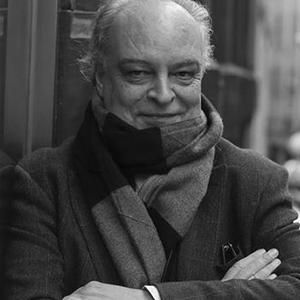
A PERMANENT HOME (Una casa para siempre) is a sizzling Enrique Vila-Matas short story that's included in Vampire in Love and other stories,
translated into eminently readable English by Margaret Jull Costa.
Spoiler Alert: In order to do a measure of literary justice here, I'm
obliged to cover this phenomenal tale from beginning to end, a tale
packing so much into a mere seven pages.
The unnamed narrator
reveals that he never knew much about his mother since she was killed in
their house in Barcelona just two days after his birth. Then, when the
narrator, a gentleman I'll refer to as Luis, reaches the age of twenty,
his father summons him to his deathbed to reveal something of critical
importance: he himself, his father, arranged the death of his mother.
Luis
always imagined a hired killer but, once he recovers from the initial
shock, begins to believe his father's confession, a man “devoting
himself with implacable regularity and monstrous perseverance to the
solitary ritual of creating his own language through the writing of a
book of memories or an inventory of nostalgias, which I always assumed
would, when he died, become part of my tender, albeit terrifying,
inheritance.” I've included this extended quote to underscores Enrique
Vila-Matas's focus on language, writing, and memoir, subjects running as
a common thread throughout his fiction.
Luis's father married
his mother because, by his calculation, she was perfect: extraordinarily
naive and docile, a poor orphan who would especially appreciate the
security, comfort, and wealth he could offer her. Quite different from
his two previous wives: hell-raisers who would fly into fits of rage at
the slighted provocation and sometimes even physically attack him, as
was the case with his first wife who bit off half his ear.
Upon
receiving his father's imploring letter, his mother turned up in
Barcelona where she knocked on the door of his mansion. When his mother
entered the house, his father tells Luis he was overcome with the most
intensely erotic impulse he had ever felt. And when she told him she was
an expert at dancing the tirana, a long-forgotten medieval
Spanish dance, he ordered her to dance, which she did until collapsing,
exhausted, in his arms. Whereupon he affectionately ordered her to marry
him at once. And that night when they slept together, his father said
he experienced undreamed of bliss. And it was that very night when he
was conceived. Sidebar: a telling detail of his father's view of men and
women - he didn't ask his mother to marry him; rather, he ordered her
to do so.
What transpires next in this Enrique Vila-Matas tale is
quite remarkable. Luis's dying father requests a glass of vodka. After
an initial hesitation, Luis goes down to the kitchen and fills two
glasses. Luis can see his Aunt Consuelo entirely absorbed by her desire
for a particularly painting hanging in the living room, a painting of
angles climbing a ladder. And then the shocker: Luis says his Aunt's
absorption is similar to his father's. “And he, at that moment, was
entirely absorbed in feeding the illusion of his story.” Ah, so we could
very well be listening to a dying man's fabrication. This fact is
reinforced when his father explains what happened on their honeymoon,
confusing Paris and London with Istanbul and Cairo.
His father
goes on to note his wife's odd obsession: she collected bread rolls.
Visiting Istanbul bakeries became a kind of strange sport. When he
protested and asked why bread rolls, she replied as if humoring a
madman, “The troops have to eat something.” The strangeness continues.
At night, his wife began talking in her sleep, barking out implacable
commands: “Fall in!” “Right turn!” “Break ranks!” Reveille, he father
tells him, “became a real torment, because every day, minutes before
your mother woke, her snoring appeared to be imitating the unmistakable
sound of a bugle at dawn.” Luis is taken aback, wondering if, while on
the verge of dying, his father's sense of humor along with his flair for
storytelling is magnificently on display here.
A Permanent House
contains much colorful detail, including how his mother began to take
on the role of army general constantly shooting out orders to his poor
father. I've only touched on several highlights in my compressed
retelling. You'll have to read for yourself. I'll end with quoting the
concluding paragraph that curiously mirrors the words at the end of
Enrique Vila-Matas' novel, Mac's Problem:
“My father, who
had once believed in many, many things only to end up distrusting all
of them, was leaving me with a unique definitive faith: that of
believing in a fiction that one knows to be fiction, aware that this is
all that exists, and that the exquisite truth consists in knowing that
it is a fiction and that, nevertheless, one should believe in it.”
Spanish author Enrique Vila-Matas, born 1948
Comments
Post a Comment